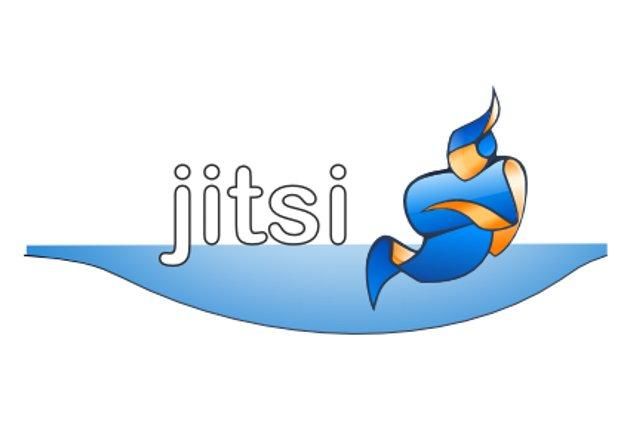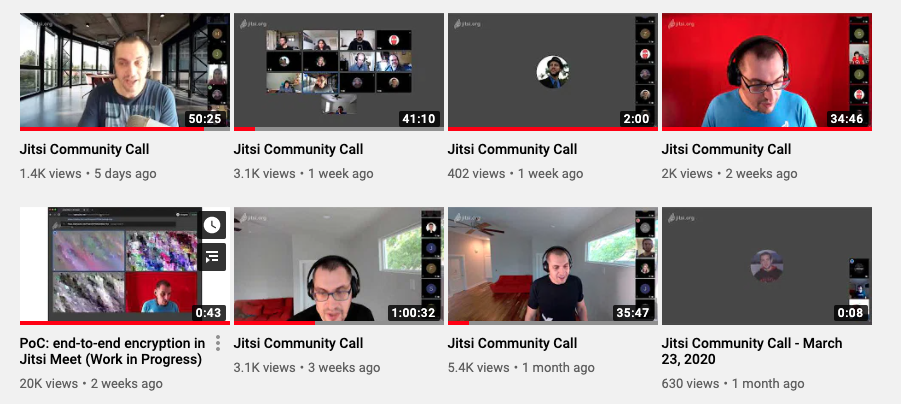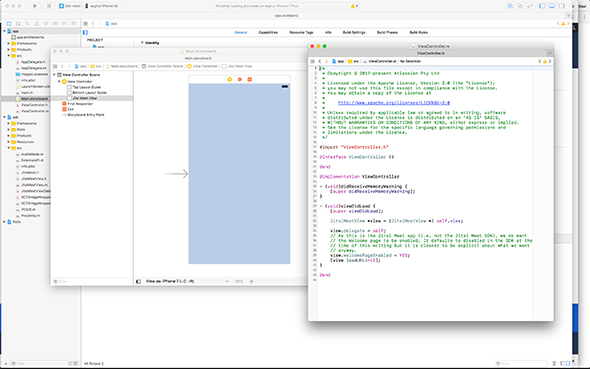

Take the case of 10 people having a discussion in a room. Jitsi models its meetings after in-person gatherings. Anyone can mute or kick me out of my meeting, what’s up with that?
#Jitsi community password
So you have to make sure that you set the password again, if you find yourself ending the meeting and then rejoining.Ī similar approach you might consider would be to append a random character sequence at the end of your room name.

More importantly, keep in mind that your password, just as chat and speaker stats, will be reset once the last person leaves the room. A few important things to keep in mind: if you do set a password, it is your responsibility to communicate it to your peers. We also give people the option to set a meeting password. You’ll see a warning if your meeting name has a high chance of collision, so stay tuned ! We are also working on a “bad meeting name detector”. For example, next time you’d like to have a coffee with someone over video, rather than going for /coffee, try something with more of a twist. If you don’t like the funky way the auto-generated names sound and you don’t want to use a long and uninviting UUID (which you totally could), then go ahead and pick a name by yourself but make sure it is long enough. Picking out one of the auto-generated names is therefore quite safe. It offers names that are easy to remember and read out loud on a phone call, and come from a set of over a trillion possible combinations.
#Jitsi community generator
How does one pick a good room name then? Our random meeting name generator is a great start. If you start a meeting with the name “Test”, “Yoga” or “FamilyMeeting” for example, chances of having some random uninvited people joining are very, very high. Then there’s the matter of choosing the name. Advertising this name publicly, for example on social media, is something you should only ever do if you truly are comfortable with maximum exposure and the possibility of unwelcome visitors. You shouldn’t send it to anyone you do not want in your meeting. One has to really keep in mind that the name of a meeting is sensitive and needs to be protected. This is generally not much of a problem for small size deployments (remember you can host your own Jitsi Meet ) or low profile meetings but it may be a problem if you are using a large and public deployment such as or if there is significant interest in your meeting. We don’t want others accidentally stumbling into our meetings, just as we want to keep pranksters and snoopers away. That said, since a name is all that one needs to actually access a room, we have to be really careful about how we choose and advertise them. Some of the systems that let people “pre-create” rooms, have subtle indications that let a potential attacker distinguish reserved from unreserved meetings which then makes the reserved meetings easier to identify and target. If someone joins the same room again, a brand new meeting is created with the same name and there is no connection to any previous meeting that might have been held with the same name. They get created when the first participant joins and they are destroyed when the last one leaves. To begin with, all meeting rooms are ephemeral: they only exist while the meeting is actually taking place.

In many respects Jitsi meetings are simply private by design. Fully secure you say… What does this mean exactly? Security and privacy are very broad topics so we are going to try and go through some practical use cases to demonstrate what’s at play. That means, amongst other things, we are very mindful of the security and privacy aspects that affect our users. If you have discovered a security issue in any Jitsi project and are looking to get in touch with us, please check here.įor us Fellow Jitsters, developing a platform our users can rely on is the most important thing. Jitsi Meet Security & Privacy ⚠️ Reporting security issues


 0 kommentar(er)
0 kommentar(er)
